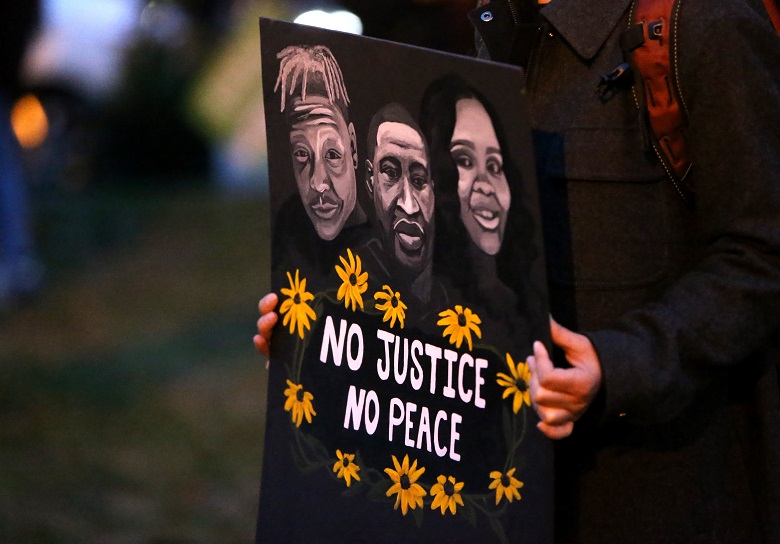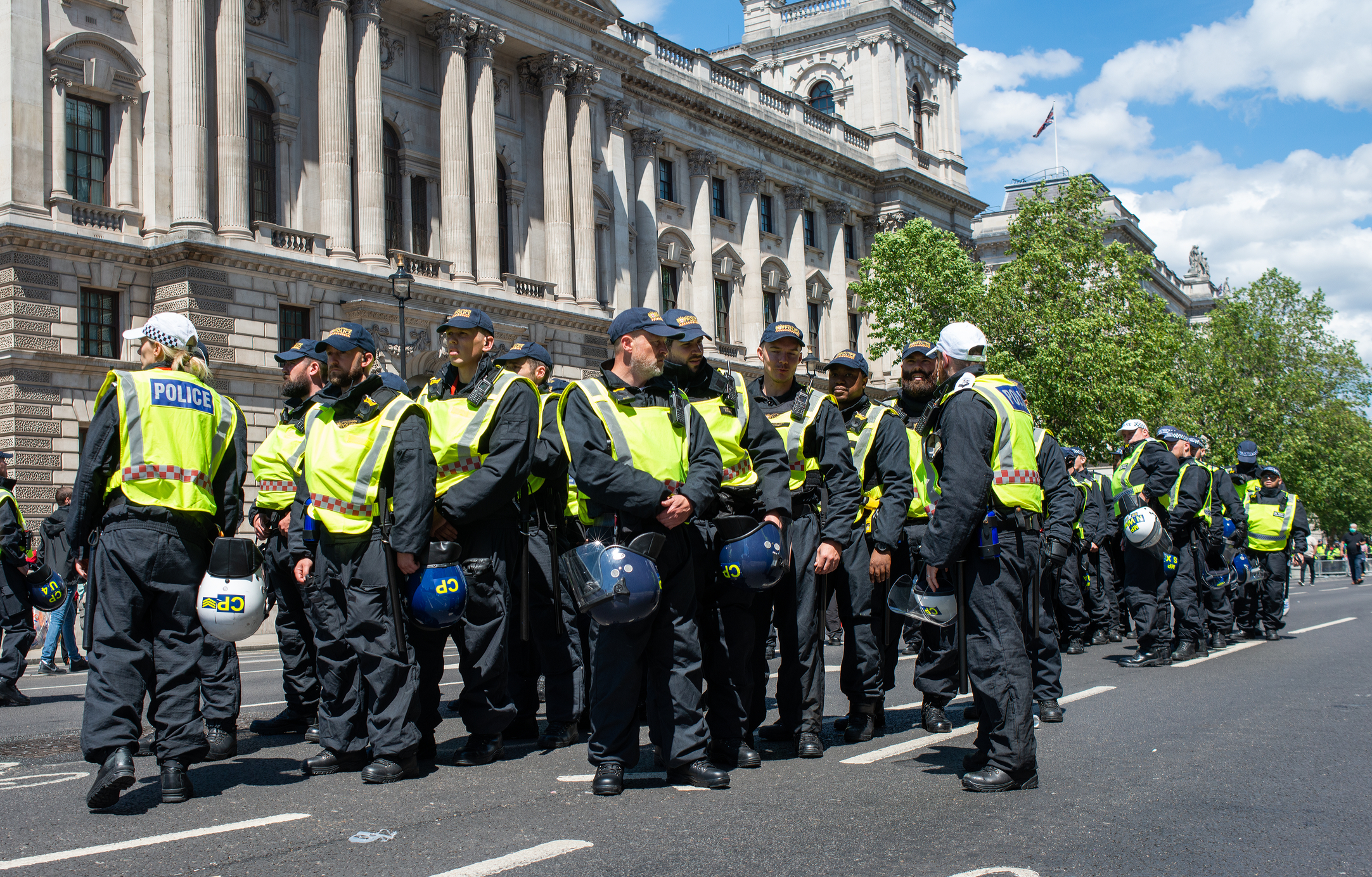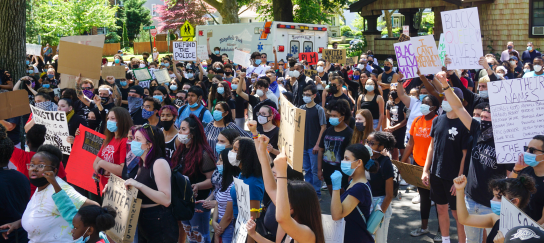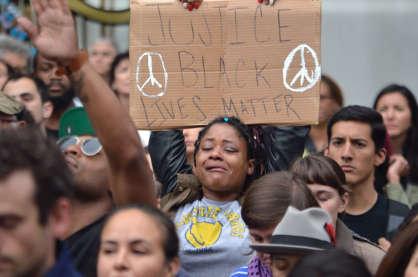The Open Justice Centre was created in 2016 to leverage the expertise of The OU Law School for the public benefit. It provides opportunities for students to engage in a range of pro bono activities. Since its inception the Centre has worked in partnership with The Freedom Law Clinic (FLC), a not-for-profit company providing pro bono research and advice on appeals for people who have been convicted of very serious criminal offences but who are maintaining their innocence.
Over the summer of 2020, FLC recognised that students needed additional virtual experiential learning opportunities and therefore brought together law students from across eight universities to collaborate on a project that explored race and policing. The comparative project examined the legal frameworks in the UK and the US and traced the historical parallels and important differences between the legal developments in both countries. The project was launched in part as a response to the death of George Floyd by the Minneapolis police, which further highlighted the issue of police killings in the US. The Black Lives Matter protests that followed drew attention to the problems of systemic racism in policing and in society, not just in the US but in the UK too.

Students examined some of the current issues in race and policing through a historical lens. They began with the pamphlet published in 1892 by Ida B Wells: the Southern Horrors: Lynch Law in all its Phases. Ida B Wells documented, investigated and campaigned against the lynching of black men and women that took place in the years following the Civil War. The project gave students an insight into the remarkable work of civil rights activists like Ida B Wells and an understanding of the historical context that informs many of the current problems in our society.
Students engaged with the work of a range of historical and contemporary writers on race and policing – Alex Vitale was highlighted as a standout speaker. He discussed with students his work The End of Policing in which he makes powerful arguments for police reform and asks critical questions such as what is the role of the police in our modern society. But issues of race and policing are not just confined to the US. The Lammy Review provided students with a powerful expose on the disproportionate numbers of BAME men and women within the England and Wales criminal justice system. The report and subsequent reports have highlighted the need for action on racial inequality in the UK.
After listening to the speakers, reading the challenging literature and engaging in online discussions, students were invited to form their own views on the issues and submit a 5000-word essay on a topic of their choice related to race and policing. Our students produced some excellent work. One important benefit of this project is that it allowed students to gain an understanding of race and policing from multiple perspectives and encouraged a critical reflection on a difficult and complex subject. The OU Law School is extremely proud of the students who participated in this project: they were committed, thoughtful and reflective contributors. This is one example of the type of transformational project that law students can participate in during their studies.
Open Justice provides opportunities for OU law students to engage with their communities in a variety of different ways including providing public legal education opportunities in schools, in prisons and in courts and through the delivery of free legal advice in our virtual law clinic. The Open Justice Centre has developed a range of projects that help people who need support and pro bono legal advice – to find out more read our Annual Report, visit our website and follow us on Twitter.
A collaboration between the Faculty of Business and Law’s Open Justice and the Centre for Policing Research and Learning (CPRL) culminated in the OU’s Black History Month event entitled ‘Student voices on race and policing in the US and UK‘. This online event included Open Justice OU students discussing their experiences engaging in the race and policing project and their development of the topics for their 5000-word essays. It also provided, from CPRL’s Dr Liliana Belkin, an overview and historical context of (some of) the differences and similarities in policing in the USA and UK, first in terms of policing practices and organisations and then specifically related to race and systemic and institutional racism. This event sought to underscore the ‘enduring salience of race’ (Sampson, Wilson and Katz, 2018; Mukhopadhyay et al., 2014; Bosworth, Hoyle and Zedner, 2016) in society and at large, and in the US and UK, as specifically related to policing and the events surrounding the killing of George Floyd.
The following video is of the presentation given for Black History Month.







Rate and Review
Rate this video
Review this video
Log into OpenLearn to leave reviews and join in the conversation.
Video reviews